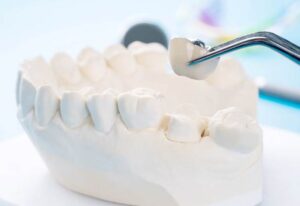Introduction
TMJ Disorders, also called jaw joint problems, affect the temporomandibular joint. This joint connects your jaw to your skull. When it does not work well, you may feel pain or have trouble moving your jaw. Many people look for TMJ Disorders treatment options to find jaw pain relief. In fact, TMJ therapy can help you eat, speak, and smile with ease. If you want to know how to treat TMJ disorders, you are not alone. These problems can impact daily life, but many solutions are available.
What Are TMJ Disorders?
TMJ stands for temporomandibular joint. This joint lets you open and close your mouth. TMJ Disorders happen when this joint or the muscles around it do not work right. As a result, you may feel pain, clicking, or locking in your jaw. According to the CDC, TMJ Disorders are common and can affect people of all ages.
Common Symptoms of TMJ Disorders
TMJ Disorders can cause many symptoms. Some are mild, while others can be severe. However, knowing the signs can help you seek help early. Common symptoms include:Jaw pain or tendernessClicking, popping, or grating sounds when moving the jawDifficulty opening or closing the mouthLocking of the jawHeadaches or earachesPain while chewingSwelling on the side of the face
Causes and Risk Factors
Many things can lead to TMJ Disorders. Sometimes, the exact cause is not clear. Yet, some common causes and risk factors include:Jaw injury or traumaArthritis in the jaw jointTeeth grinding or clenchingStress, which can tighten jaw musclesMisaligned teeth or biteGenetics or family history
For example, people who grind their teeth at night may be at higher risk. In addition, women are more likely to develop TMJ Disorders than men, according to dental journals.
Diagnosis of TMJ Disorders
Doctors and dentists use several methods to diagnose TMJ Disorders. First, they will ask about your symptoms and medical history. Next, they may check your jaw movement and listen for sounds. Sometimes, they use X-rays or MRI scans to see the joint. Early diagnosis can help you get the right TMJ therapy and jaw pain relief.
Treatment Options for TMJ Disorders
There are many TMJ Disorders treatment options. Your doctor will suggest the best plan based on your needs. Here are some common treatments:
Self-Care
Eat soft foods to avoid stress on the jawApply ice or heat packs to reduce painAvoid chewing gum or hard foodsPractice gentle jaw exercises as advised
Medications
Pain relievers like acetaminophen or ibuprofenMuscle relaxants to ease jaw tensionAnti-inflammatory drugs for swelling
Dental Treatments
Mouth guards or splints to prevent teeth grindingCorrecting bite problems with dental work
Physical Therapy
Jaw exercises to improve movementMassage and stretching for jaw muscles
Surgical Options
Arthrocentesis (flushing the joint)Arthroscopy (using a small camera to treat the joint)Open-joint surgery (for severe cases)
Surgery is usually the last option if other treatments do not help.
Alternative Therapies
Acupuncture for pain reliefStress management techniques, like meditationBiofeedback to control muscle tension
Always talk to your doctor before starting any new therapy.
Lifestyle Tips for Managing TMJ Disorders
Simple changes can make a big difference. For instance, you can:Maintain good posture, especially when sittingUse both sides of your mouth when chewingTake breaks from activities that strain your jawManage stress with deep breathing or yoga
These habits can help reduce jaw pain and prevent flare-ups.
Prevention Strategies
While not all TMJ Disorders can be prevented, you can lower your risk. Try these tips:Avoid chewing on pens or fingernailsWear a mouth guard if you grind your teeth at nightSee your dentist regularly for check-upsAddress dental problems early
Early action can stop small problems from becoming bigger ones.
Conclusion
TMJ Disorders can cause pain and limit jaw movement. However, many effective TMJ Disorders treatment options are available. With the right care, you can find jaw pain relief and improve your quality of life. If you have symptoms, do not wait. Consult a dental specialist for personalized TMJ disorder treatment advice.




